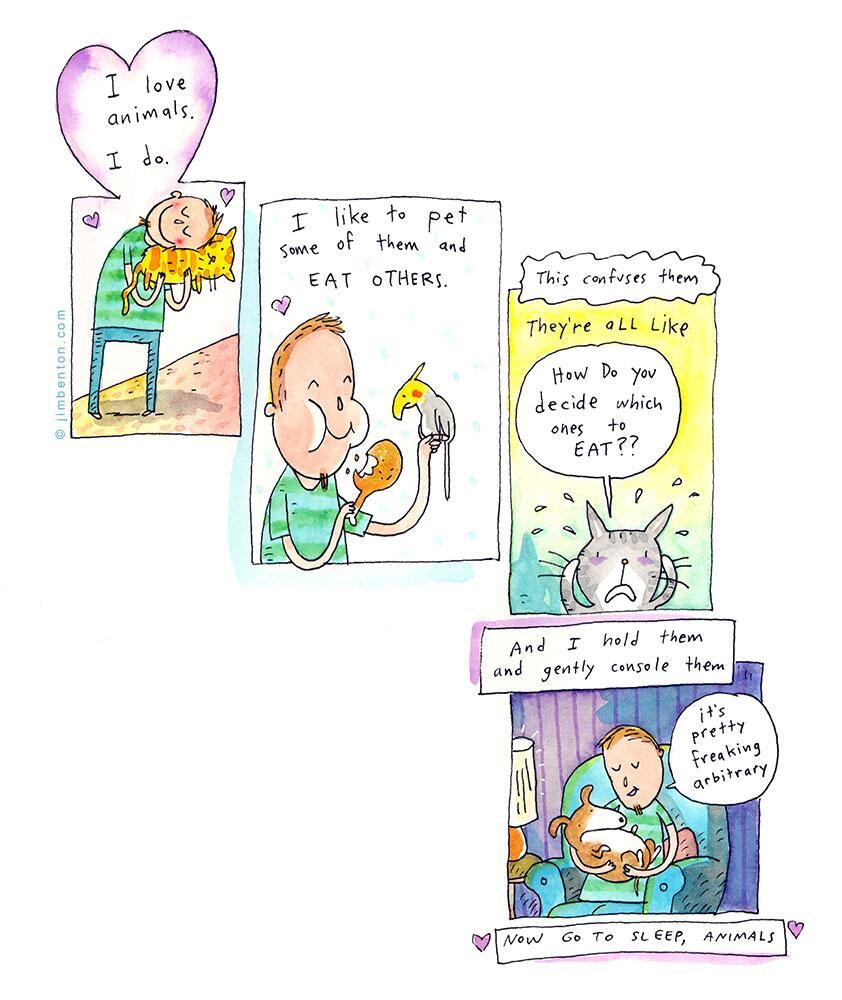this post was submitted on 21 Jul 2023
594 points (90.0% liked)
Comic Strips
12412 readers
3899 users here now
Comic Strips is a community for those who love comic stories.
The rules are simple:
- The post can be a single image, an image gallery, or a link to a specific comic hosted on another site (the author's website, for instance).
- The comic must be a complete story.
- If it is an external link, it must be to a specific story, not to the root of the site.
- You may post comics from others or your own.
- If you are posting a comic of your own, a maximum of one per week is allowed (I know, your comics are great, but this rule helps avoid spam).
- The comic can be in any language, but if it's not in English, OP must include an English translation in the post's 'body' field (note: you don't need to select a specific language when posting a comic).
- Politeness.
- Adult content is not allowed. This community aims to be fun for people of all ages.
Web of links
- [email protected]: "I use Arch btw"
- [email protected]: memes (you don't say!)
founded 1 year ago
MODERATORS
you are viewing a single comment's thread
view the rest of the comments
view the rest of the comments

It's odd to me that definition is the primary one on Wikipedia as it doesn't match with the definition I knew of. I have never seen the word "happiness" used in conjunction with the definition of that word in my entire literary history, but it seems to be a viable definition.
The definitions I knew of are: "Utilitarianism is an ethical theory that asserts that right and wrong are best determined by focusing on outcomes of actions and choices."
Or to use the dictionary definition, "the doctrine that actions are right if they are useful or for the benefit of a majority."
To use the primary definition for the moment - for the farmer, raising the animals, slaughtering them in an efficient manner, and getting them to market is utilitarian. Doubly so if you don't consider animals on the same level as the humans (which many, including the animals themselves due to a lack of broad thought, do not).
If you factor in that plants can also feel pain, you're left with a real moral quandary if your primary reason to be vegan is to not harm living things.
Not understanding the pain or finding a way to measure the pain does not mean there is no pain.
Seems like a baseless claim, we have a pretty good understanding of plant experience.
Mallatt, J., Blatt, M.R., Draguhn, A. et al. Debunking a myth: plant consciousness. Protoplasma 258, 459–476 (2021). https://doi.org/10.1007/s00709-020-01579-w
Hamilton, Adam & McBrayer, Justin. (2020). Do Plants Feel Pain?. Disputatio. 12. 71-98. 10.2478/disp-2020-0003.
Even if plants could feel pain, we could reduce suffering by skipping the inefficient middleman that endures suffering and causes "suffering" to many more plants than what is needed for anyone's sustenance.
Not baseless. There are many sources and studies claiming the opposite of yours, and as someone who worked in forestry (and lived on a non-corporate farm that produced mostly alfalfa), it's somewhat more apparent once you're there and present in that world.
To quote myself on another thread:
I trust you know how to use search, but: https://www.sciencetimes.com/articles/24473/20191218/a-group-of-scientists-suggest-that-plants-feel-pain.htm You can find many more if you look. We’ve known for a while that trees do this, and fungi are absolutely notorious for this. Plants respond to warnings from their peers about dangers, brace for pain, and signal pain to others.
Do not make the mistake of ignoring the evidence because you don’t like the outcome. You not understanding the pain does not mean there is no pain. Life for some means death for others. Period. You can not avoid it on a micro or macro scale, all you can do is change WHAT you kill.